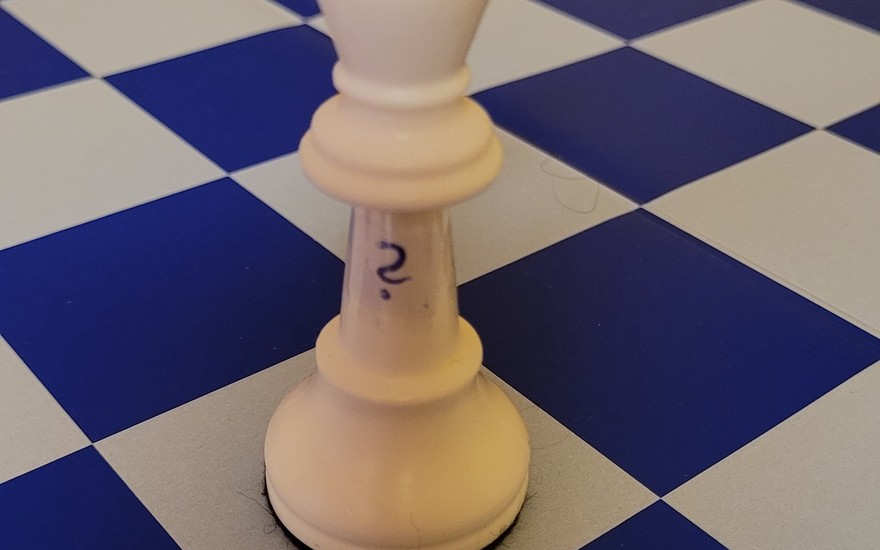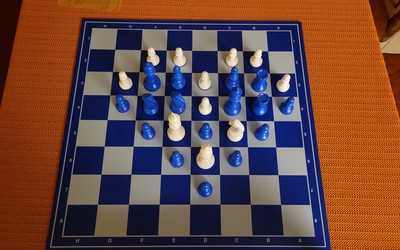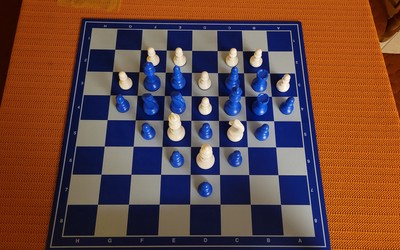
Own chessboard
Advice for beginners: Time management *before* your game?
At first, this may sound weird, but it is a fact that you should think about time before starting a game. Read on to find out why.You open lichess and see this: 1+0, 2+1, 3+0, 3+2, 10+0... there are too many possibilities, especially for beginners. Before explaining you some details about time management BEFORE your games, let me introduce a very important term: INCREMENT
An increment is a certain amount of time that is added after every move a player makes.
- If you have a 3+2 game, each player starts with 3 minutes on the clock and gets 2 seconds per move.
- Should you play a 1+0 game, you have 1 minute and don't get additional time.
Okay, but which time limit is the best one? Well, it depends on you! According to your level and to your goals, you should choose a different time limit. Either you choose the standard options offered by lichess or you define an individual duration:
- Ultrabullet, bullet and blitz (lichess standard options : from 1+0 to 5+3) = good for improving your reaction time (these games are often "quick and dirty", so they are rather played for fun than for finding strong moves because there is a high time pressure and nobody enjoys losing on time)
- Rapid and classical (lichess standard options : from 10+0 to 30+20) = good for calculating variants as well as for thinking about one's own plan and about the opponent's one (because you have more time)
- Correspondence (lichess options: from 2 days to 14 days OR unlimited) = good for calculating variants, too (please consider that these games often take some weeks or even months, this is normal... every opponent can take as much time per move as he/she wants to... but please also note that it is VERY IMPOLITE to let the other player wait 100 years for an obvious move, especially if that is the case in the opening)
Now, which time limit is the best one for beginners? I highly recommend new players to start with a large time limit (at least 45+0, maybe with an increment: e. g. 45+10) instead of playing very short games (they don't help you get better at chess, you can still play (ultra)bullet and blitz later at any time). It also makes sense to play unrated games at the beginning (which don't affect your lichess elo, i e. the number that shows your level in each category of games).
I hope you learned a lot by reading this article and I am looking forward to reading your comments.
PS 1: During a game, you should take less time in the opening than in the middlegame and endgame because at the beginning, you always follow the same Golden rules to find a good way into the game. But in the middlegame, there are more traps to pay attention to (key words: tactics and strategy) and in the endgame, it is good to stay patient because one very little mistake can completely change the situation. See my article on that topic: https://lichess.org/@/pafchess/blog/beginners-blog-2-how-to-play/fOzL0u2n (including a very instructive study!)
PS 2: I would really welcome it if you could consider becoming a lichess PATRON for supporting this free platform (and for reading my free content!). Check out how to get these wonderful wings next to your nickname: https://lichess.org/patron
More blog posts by pafchess

ABC of chess
This is my list of the most central terms for chess beginners and amateurs, going from A to Z. Enjoy…
Der Respekt ist tot???
Ein schlechter Scherz? Oder traurig, aber wahr? Vor ein paar Tagen fand ich auf meiner Lieblingsseit…
The future of lichess - make love, not war!
In the last months, I remarked that some topics in the "off-topic"-area cause emotional discussions:…